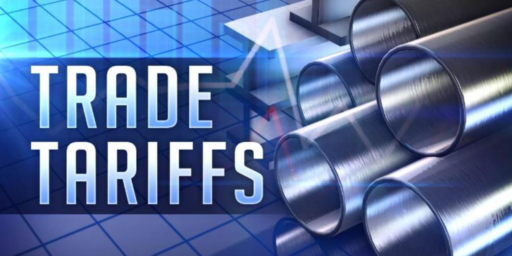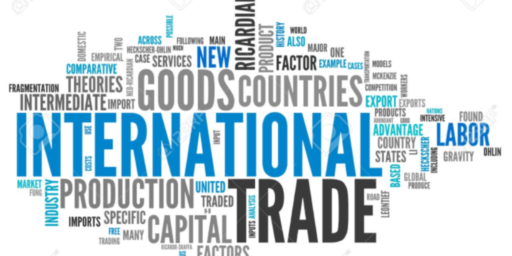REPEAL THE STEEL (TARRIF)
The Wall Street Journal would like to see President Bush “undo his worst econmic mistake.”
The President has been quiet about his tariffs ever since he imposed them in March 2002, and with good reason. The evidence is that they’ve done far more economic harm than good, especially to American manufacturing. Designed to help only a single industry, the tariffs have instead punished the far more numerous industries that use steel.
In the wake of the tariffs, domestic steel prices have risen by 30% or more. The price of hot-rolled steel, a major industrial commodity, nearly doubled from late 2001 to July 2002. Shortages in specific products abound, as foreign steel makers have sent their steel to suppliers in other countries. Many steel consumers have struggled to find reliable, quality product at prices that keep them competitive with foreign manufacturers.
This has all cost American jobs. A study done this year for the Consuming Industries Trade Action Coalition found that higher steel prices cost some 200,000 American jobs and $4 billion in lost wages from last February to November. That compares to employment in the entire domestic steel industry of only 188,000. No fewer than 16 states lost at least 4,500 steel consuming jobs, including the key Presidential election states of Pennsylvania and Florida that each lost nearly twice that number. (Karl Rove, see Electoral College map.)
The specific job consequences were laid out in illuminating detail on the Senate floor last month by Tennessee’s Lamar Alexander. The Republican noted his state is now home to 900 auto supply companies that employ 100,000 workers. When those companies couldn’t raise prices to cover increased steel costs, they “suffered losses and began to lay off employees. In a few instances entire plants closed.” Auto supplier ArvinMeritor closed a plant employing 317 in Gordonsville. A plant in Pulaski laid off 100 more.
The Senator also cited Dura Automotive Systems, which has five Tennessee plants and makes driver control systems. Dura lost $10 million last year, largely due to higher steel prices for hot- and cold-rolled strip steel, and its delivery wait for U.S. steel products increased to 18-20 weeks from 10-12. In a world demanding “just in time” inventory, this can be deadly.
I’m certainly with the WSJ team on this one. Of course, the tariffs were imposed in a sheer act of political pandering in hopes of shoring up Republican support in Ohio and Pennsylvania; there was never an expectation this would be good for the overall economy. I’m not sure how successful it’s been in helping out the Rust Belt, but it has almost certainly caused more harm to the economy than it’s helped those constituents. But this is a classical collective action problem: the minority who benefit have a lot more incentive to preserve their gains than those who are harmed to do something about it.



And I’d also like to see the farm subsidies go the same route into the trash can. Those were pretty darn stupid.
—